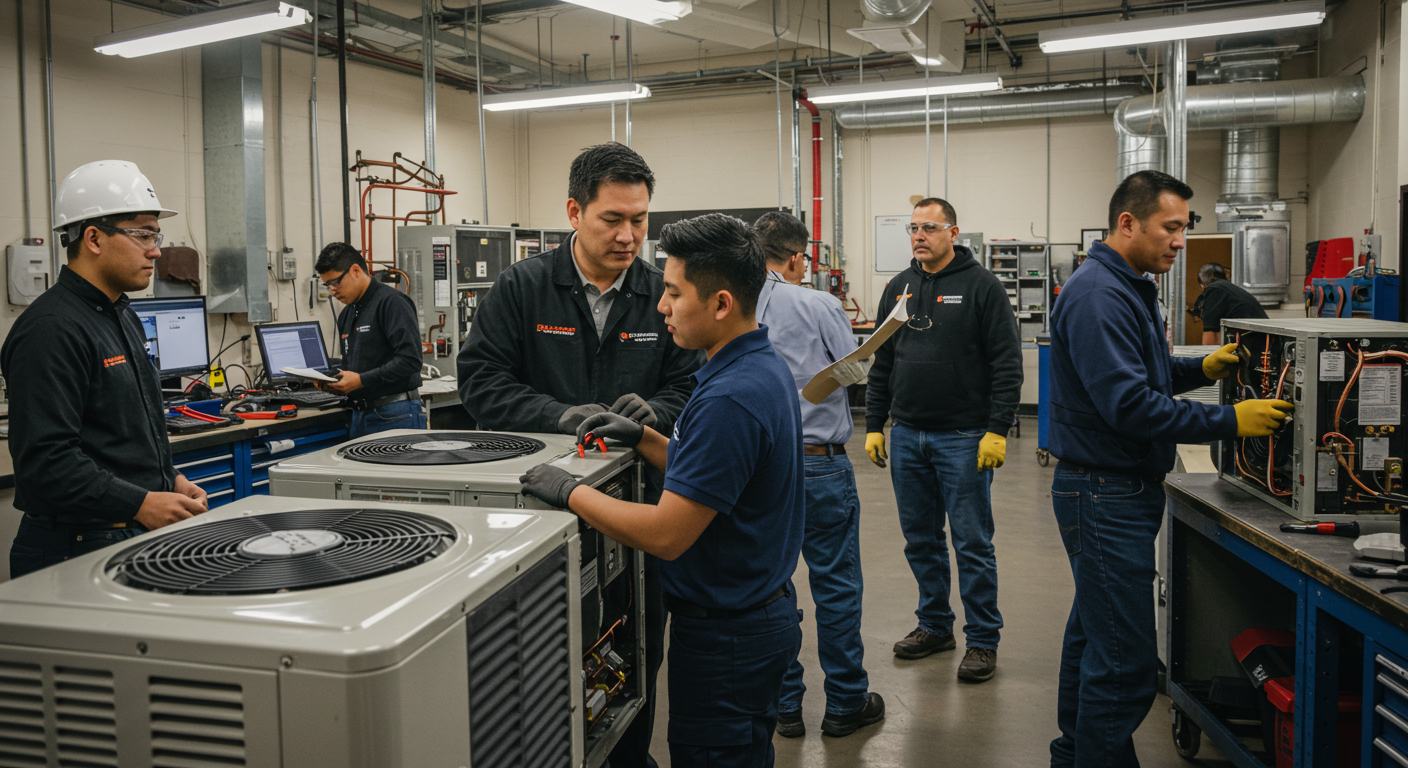Succession Planning: Developing Future HVAC Leaders
As we step into the future, the need for effective succession planning in the HVAC industry has never been more critical. With only 35% of HVAC, plumbing, and electrical business owners having a formal succession plan, many are unprepared for leadership transition. This leaves a significant gap in leadership development, which can lead to operational disruptions and financial losses. In this blog post, we will explore the importance of succession planning and how you can develop future HVAC leaders to ensure your business’s continuity and success.
Understanding the Importance of HVAC Succession Planning
Succession planning for HVAC companies is not just about filling a role when someone leaves—it’s about ensuring the long-term success and stability of your business. Nearly two-thirds of U.S. business owners have some form of succession plan, yet many in the HVAC sector feel unprepared. This highlights the need for comprehensive HVAC leadership development and management training to bridge the skills gap.
Key Components of Effective Succession Planning
To develop future HVAC leaders, you need a robust plan that includes identifying and training potential leaders, aligning management teams with long-term goals, and considering mergers and acquisitions (M&A) strategies. These components are essential for preserving business value and ensuring business continuity during ownership transitions.
Training and Development
Investing in HVAC workforce development is crucial. Future HVAC leaders should be equipped with the skills and knowledge required to manage advanced systems like the Ruud Econet 800 Series Smart Thermostat. This technology can streamline operations and is available through Mar-Hy Distributors.
Aligning with Long-Term Goals
Your management team should be aligned with your company’s long-term goals to ensure a seamless transition. This involves regular meetings and strategic planning sessions to keep everyone on the same page.
Consider Mergers and Acquisitions
M&A strategies can be a valuable tool in your succession planning toolkit, helping to preserve your business’s value and expand its reach during leadership transitions.
- Identify and train future leaders early.
- Align your management team with long-term goals.
- Consider M&A strategies for business continuity.
- Invest in advanced management systems like the Ruud Econet 800.
- Regularly review and update your succession plan.
Conclusion
In conclusion, succession planning is a critical aspect of ensuring your HVAC company’s future success. By developing future HVAC leaders and implementing a solid succession plan, you can mitigate risks, ensure business continuity, and protect your company’s value. Start planning today to secure your business’s tomorrow.
Ready to take the next step in your HVAC succession planning? Contact us today to learn how we can help you develop a robust plan for your business’s future!
Frequently Asked Questions
What is HVAC succession planning?
HVAC succession planning involves preparing for leadership transitions in your company to ensure business continuity and long-term success.
How can I develop future HVAC leaders?
Develop future HVAC leaders by identifying potential leaders early, providing them with training, and aligning them with your company’s long-term goals.
Why is succession planning important for HVAC companies?
Succession planning is important because it mitigates risks, ensures business continuity, and protects your company’s value during leadership transitions.
What role do M&A strategies play in HVAC succession planning?
M&A strategies can help preserve business value and expand your company’s reach during ownership transitions, making them a valuable tool in succession planning.
How can advanced management systems aid in HVAC leadership succession?
Advanced systems like the Ruud Econet 800 can streamline operations, making it easier for future leaders to manage and improve efficiency within the company.


